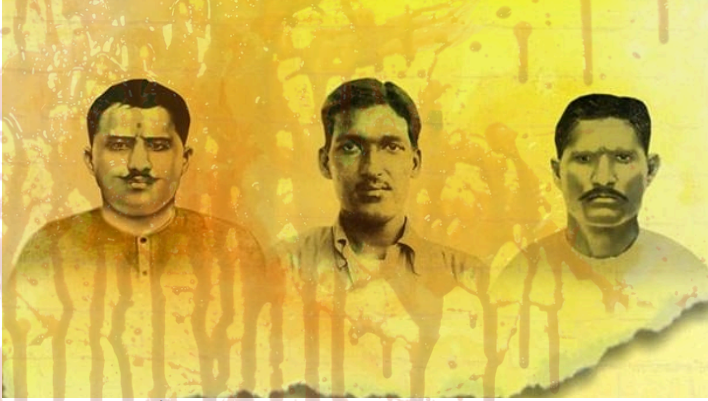The recent escalation in the Middle East, with Israel launching aggressive offensives on Iran, once again with backing from the US military, has stirred a global debate. It is not just a geopolitical tension between two adversaries; it is a flashpoint that reveals the underlying mechanics of a crumbling global capitalist order. These are not isolated events born out of ideological animosity or national security. They are symptoms of a deeper, systemic crisis embedded in a profit-driven global economy that survives on dominance, division, and disorder.
From the suppression of Palestine to the growing tension with Iran, the capitalist world order exhibits a consistent pattern: when profit margins are threatened by overproduction, economic stagnation, or the rise of rival economic blocs, it seeks to reassert dominance through militarization. Sanctions, interventions, and even wars become tools to reorganize global markets under their control.
Israel’s accusation that Iran is covertly developing nuclear weapons — despite the UN nuclear inspector’s report stating no concrete evidence was found — reeks of this strategic fabrication. The refusal to exhaust diplomatic avenues before resorting to military action reveals a broader agenda: not peace or stability, but profit and control.
Countries like the United States, Britain, and France are deeply invested in this crisis, not just politically but economically. For instance, Britain supplies critical F-32 jet components to Israel. Such ties show that for the imperialist powers, regional conflict is a lucrative business. When sanctions no longer suffice — due to global inflation, economic stagnation, and rising public discontent — war becomes the next logical step for capital.
Historical Precedents: Imperialist Retaliation Against Defiant Nations
This is not new. Over the last century and a half, any nation that dared to challenge the capitalist world order or step outside the imperialist framework has faced retaliation. From the October Revolution in Russia to revolutionary Cuba, from Iran’s nationalisation of oil to Venezuela’s assertion of sovereignty, the response has always been similar: economic sanctions, military aggression, or global isolation.
While some countries like China and India have managed to balance between capitalist integration and national assertiveness, others like Cuba, North Korea, and Venezuela continue to face the brunt of isolation. The deciding factor is: what leverage does a country hold to force others to the negotiating table?
India’s Strategic Weakness in Global Trade
India is not without resources or capability, but it lacks the strategic strength to stand up against imperialist aggression should it ever move towards a radical alternative like socialism. The fault lies not in scarcity but in planning. Despite rich natural resources and a vast productive workforce, India’s economy remains deeply tied to Western finance capital and supply chains.
We must study which groups of finance capital and which countries are accumulating capital from the surplus value extracted from the Indian working class — whether through overpriced technology, foreign investment in shares, or exploitative loans and tax structures. The real investigation must begin here: tracing how finance capital and monopoly capitalism extract and accumulate wealth produced by the labouring masses of developing nations. Only by doing so can we truly expose the mechanics of how imperialism continues to loot the working class in new forms.
Limits of India’s Export Economy
India’s biggest exports — refined petroleum, machinery, pharma, and cars — offer insights into our structural weaknesses. The trade volume is impressive, but the value is captured abroad. Western companies retain control through finance capital, branding, and intellectual property.
India’s overreliance on imported technology means we manufacture but don’t innovate. We operate the machines but don’t build them. Without producing the means of production ourselves, we remain trapped in a dependent relationship. This technological imperialism is harder to detect than military occupation, but equally damaging.
Pharmaceutical Industry: An Underused Leverage
India supplies 20% of generic medicines and 60% of vaccines globally by volume. But the value we earn is disproportionately low. Western firms own patents, control R&D, and decide pricing. Yet, the world depends on India for affordable, mass-scale pharmaceutical production. This is not just about cost; it is about skill and scale.
Even during COVID-19, Western countries turned to India. When a Spanish minister questioned why India could produce vaccines but Europe could not, the answer was simple: India has the skill, scale, and precision. This is our leverage. And yet, we don’t build on it. We don’t use it to shape global trade rules or assert autonomy. A revolutionary India must not squander this potential.
The Path Ahead: A Socialist Strategy for Industrial Sovereignty
If a revolutionary force of the working class ever emerges in India, its first threat will not be domestic repression alone but global isolation. The imperialist forces will unite to crush it, using sanctions, trade restrictions, and perhaps more. To survive such an onslaught, India must convert its population into a highly skilled, self-reliant productive force.
Even under capitalism, India’s ruling class fails to act in the long-term interest of national development. A genuinely strong bourgeois state would invest in education, science, and technological innovation to ensure self-reliance. But the Indian bourgeoisie has consistently neglected these areas. As a result, a major part of the surplus value produced by Indian workers flows abroad — captured by technologically advanced nations who dominate patents, capital, and trade rules.
This backwardness is not a coincidence but a feature of the comprador character of India’s ruling elite. They are content to act as junior partners in the imperialist order, even if it means long-term dependency. The real face of bourgeois development is anti-worker and anti-national. It exploits domestic labour while giving away national sovereignty to foreign capital. We must expose this with clarity.
Connecting the Dots: The Global Crisis of Capitalism
The attack on Iran, the prolonged siege of Gaza, and the economic bullying of defiant nations are not anomalies. They are symptoms of a deeper capitalist crisis. Sanctions and war are just updated tools of the same imperial order that once used colonies and coups.
And the resistance is not just military or economic. It must be cultural, political, and intellectual. This issue of our magazine explores the many faces of this resistance and the systemic crises that necessitate it.

